The arrest of 53 democracy activists in dawn raids across Hong Kong on Jan. 6 has sparked an international outcry over what is the biggest crackdown since Beijing last year imposed a security law which opponents say is aimed at quashing dissent in the former British colony.
Hong Kong’s most prominent pro-democracy advocates were arrested in raids on 72 premises as the authorities said an unofficial vote held last year to choose opposition candidates in city elections was part of a plan to “overthrow” the government.
The vote was unprecedented, independently organized and non-binding to select opposition candidates for a since-postponed legislative election.
About 1,000 police took part in the raids, which included searches of the offices of a pollster and a law firm.
Beijing’s top representative office in Hong Kong said in a statement it firmly supported the arrests.
Police did not name those arrested, but their identities were revealed by their social media accounts and their organizations. They included former lawmakers, activists and people involved in organising the 2020 primaries, among them James To, Lam Cheuk-ting, Benny Tai and Lester Shum.
The arrests have further raised alarms that Hong Kong has taken a swift authoritarian turn. Critics say the National Security Law enacted June 2020 crushes wide-ranging freedoms promised with the handover.
Authorities in Hong Kong and Beijing say the law is necessary to plug gaping holes in national security defenses exposed by months of pro-democracy protests that rocked the global financial hub last year.
Members of the city’s democratic camp held a news conference on Dec. 6 to call for the release of “political prisoners”.
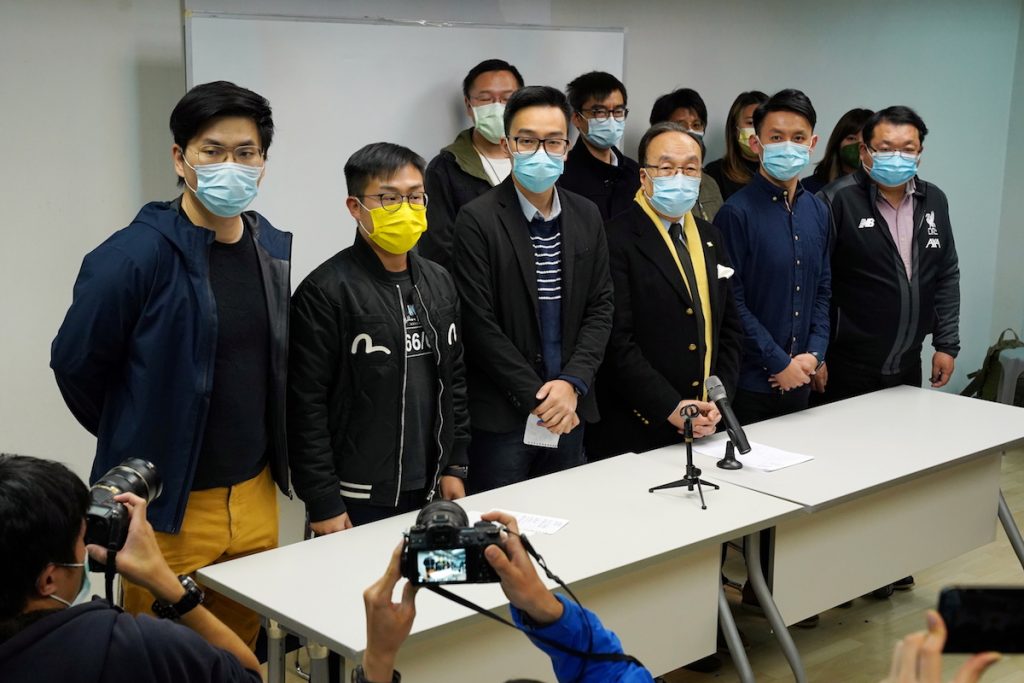
‘Grave repression of political pluralism’
Britain’s Foreign Secretary Dominic Raab rebuked Beijing over the mass arrests and described the crackdown as a grievous attack on Hong Kong’s rights and freedoms as protected under the Sino-British Joint Declaration treaty signed in 1984.
“These arrests demonstrate that the Hong Kong and Chinese authorities deliberately misled the world about the true purpose of the National Security Law, which is being used to crush dissent and opposing political views,” Raab said Dec. 6
US Secretary of State Mike Pompeo said in a statement that the United States was considering sanctions and other restrictions on those involved in the arrests.
Pompeo also said he was “appalled” by the arrest of an American citizen, lawyer John Clancey, as part of the crackdown. “The United States will not tolerate the arbitrary detention or harassment of US citizens,” he said.
Clancey was arrested during a raid of law firm Ho, Tse, Wai & Partners, a source at the firm said.
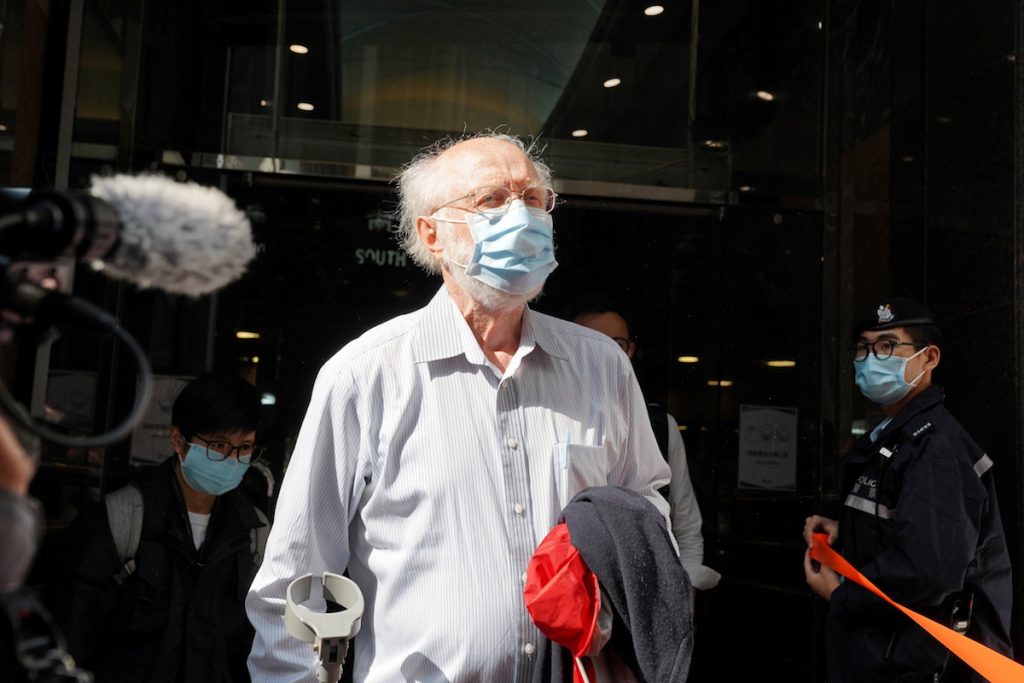
Pompeo called the arrests an “outrage and a reminder of the Chinese Communist Party’s contempt for its own people and the rule of law.”
“The United States will consider sanctions and other restrictions on any and all individuals and entities involved in executing this assault on the Hong Kong people,” Pompeo said.
He added that the US would “explore restrictions against the Hong Kong Economic and Trade Office in the United States, and take additional immediate actions against officials who have undermined Hong Kong’s democratic processes.”
Canada weighed in, saying the arrests are a “grave repression of political pluralism” and called for the detainees to be freed.
Among the dozen or so retweets by Hong Kong’s outspoken Cardinal Joseph Zen opposing the arrests was one reporting Taiwan’s reaction to the arrests with the government there saying Hong Kong had changed from the “pearl of the Orient” to “purgatory of the Orient”.
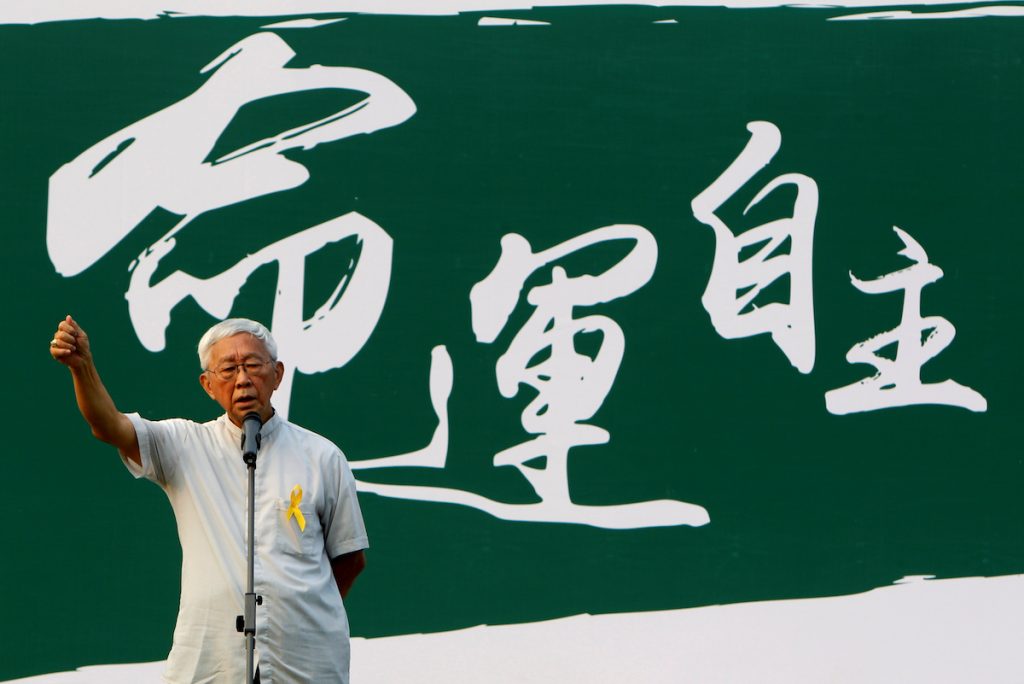
‘Brutal destruction of a free society’
Chris Patten, the last British governor of Hong Kong said, “The Chinese Communist Party has further turned the screw” on the city which was handed back to Chinese rule in 1997.
“Liberal democracies around the world must continue to speak out against the brutal destruction of a free society,” he said.
Patten, a Catholic, said the West should get tougher with China and scolded the European Commission for seeking a trade deal with Beijing.
“We should not be seeking to contain China but to constrain the Chinese Communist Party,” Patten said.
Benedict Rogers, from the UK-based rights group Hong Kong Watch, said those arrested could face years in prison.
“The message is clear: No matter who you are — radical or moderate, ex-pat, ethnic minority or Cantonese: Dare to express an opinion divergent from Beijing’s wishes and the police will come knocking on your door,” Rogers said.
Michael J. Abramowitz, president of US-based Freedom House, described the crackdown as unprecedented.
“[It] showcases blatant disregard for the rights Hong Kongers are supposed to enjoy under law and reveals the intention of the Chinese Communist Party to suppress any effort by Hong Kongers to salvage democratic representation,” Abramowitz said in a statement.
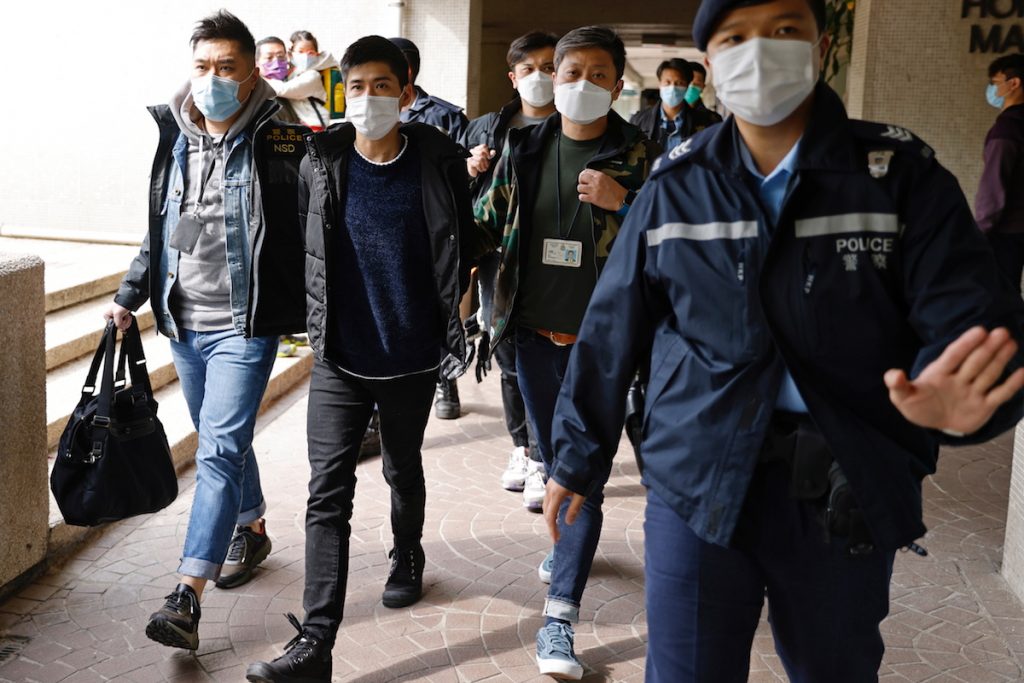
The ‘subversive’ vote
But Hong Kong Secretary for Security John Lee said those arrested had planned to cause “serious damage” to society and that authorities would not tolerate subversive acts.
Hong Kong police said campaigning to win a majority in the city’s 70-seat Legislative Council with the purpose of blocking government proposals to increase pressure on democratic reforms could be seen as subversive.
The city’s leader is not directly elected and only half the legislative seats are open to democratic vote, with the other half stacked mostly with pro-Beijing figures.
“The people involved are suspected of making use of what they call a ’35+’ plan … to somehow paralyze the Hong Kong government,” Lee said, adding the government would not tolerate any “subversive acts”.
Police cited a rule that if the legislature fails to pass the annual budget twice, the city’s chief executive must step down. The national security law prohibits disrupting and interfering with the city’s administration.
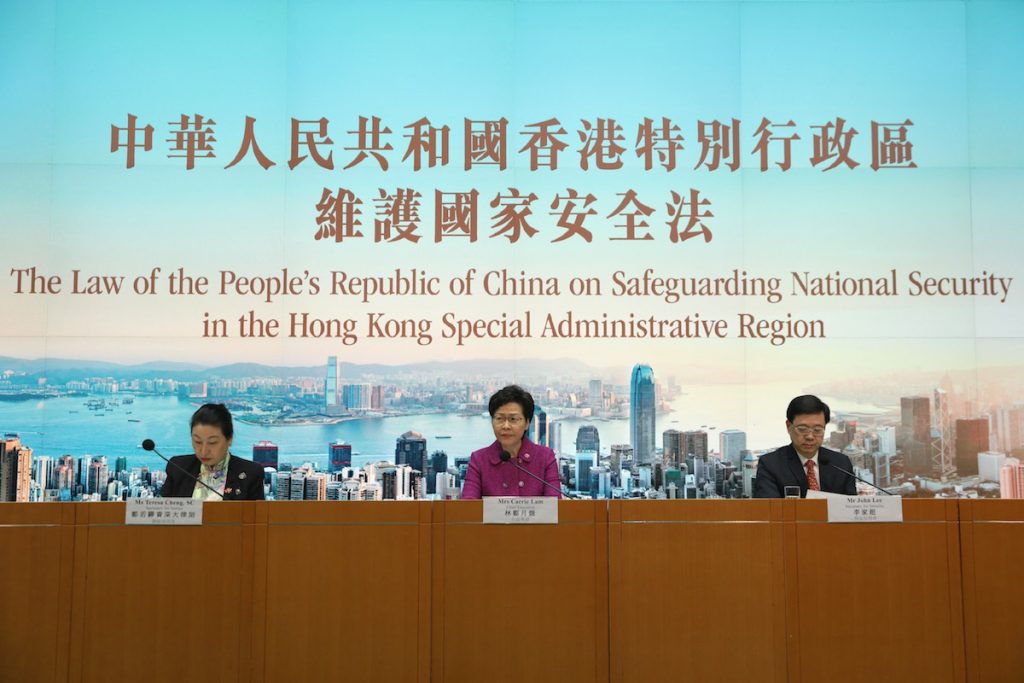
The legislative election was due in September last year but was postponed, with authorities citing coronavirus risks. It is unclear who could run for the opposition in any future polls following the mass arrests.
In the Dec. 6 operation, police searched the offices of Hong Kong Public Opinion Research Institute which helped organise the primaries. The organizers destroyed the data of the more than 600,000 people who voted immediately after ending the count.
Visits to four media outlets, including pro-democracy tabloid Apple Daily, were about “transactions” with pro-democracy groups and unrelated to reporting matters, police said.
Since the imposition of the national security law, leading activists such as Catholic media mogul Jimmy Lai have been arrested, some democratic lawmakers have been disqualified, activists have fled into exile and protest slogans and songs have been declared illegal.
Lai’s newspaper Apple Daily reported earlier in the week that Catholic pro-democracy activist Agnes Chow is being held to a top-security prison — alongside murderers and drug traffickers — after she was sentenced to seven months imprisonment on charges relating to illegal assembly.
With Reuters






